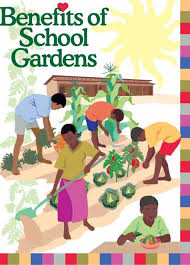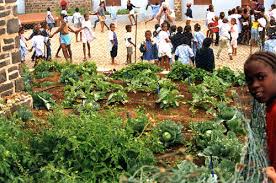

Last time I blogged about donating a barn owl box to one of the local elementary schools for their new school garden. I have since done some research into garden-based learning for elementary schools. It is a growing trend nationally. A good summary on Wikipedia in part states:
Landscape designers, teachers, and others consider children’s gardens to be one of the most notable positive trends in the nation today. These environments can foster science literacy and social skills, while enhancing an awareness of the link between plants in the landscape and our clothing, food, shelter, and well-being. Gardening projects provide children and youth with the carefree exploration of the natural world that occurs rarely in today's era of indoor living; it can also give young people the chance to develop a wide range of academic and social skills. Noted benefits of garden-based learning programs among youth include increased nutrition awareness, environmental awareness, higher learning achievements, and increased life skills
Increased nutrition awareness Research indicates that youth who participate in garden-based learning programs have increased their consumption of fresh fruits and vegetables, and gained new enthusiasm for fresh, nutritious vegetables they grew. Teachers also regarded the garden to be very effective at enhancing academic performance, physical activity, language arts, and healthful eating habits.
Increased environmental awareness Research highlights that high school students gain more positive attitudes about environmental issues after participating in a school garden program. Gardening has also been shown to increase scores on environmental attitude surveys of elementary school children.
Higher Learning Achievements Studies indicate that students that participated in school gardening activities scored significantly higher on science achievement tests compared to students that did not experience any garden-based learning activities. Other research has indicated that weekly use of gardening activities and hands-on classroom activities help improve science achievement test scores.
Increased Life Skills Research has highlighted the increased life skills attributed to children's garden programs: enhances moral education, increases appreciation for nature, increases responsibility, develops patience, increases in relationship skill, increases self-esteem, helps students develop a sense of ownership and responsibility, and helps foster relationships with family members.

There are several resources for schools/volunteers on how to develop your school garden. Start by looking at the resource list at the end of the Wikipedia article. If you are in northern California, UC Davis has a Children's Garden Program at their Student Farm. They offer workshops for creating and sustaining school gardens. There is also the California School Garden Network and they have an excellent resource section on their website. You can download CSGN's Gardens for Learning - Creating and Sustaining Your School Garden guidebook.
If your school does not have, or have plans for, a school garden, think about taking that first step and inquire about the possibility of starting a garden for your school.
GOOD LUCK TO ALL THE LITTLE GREEN THUMBS OUT THERE!!
